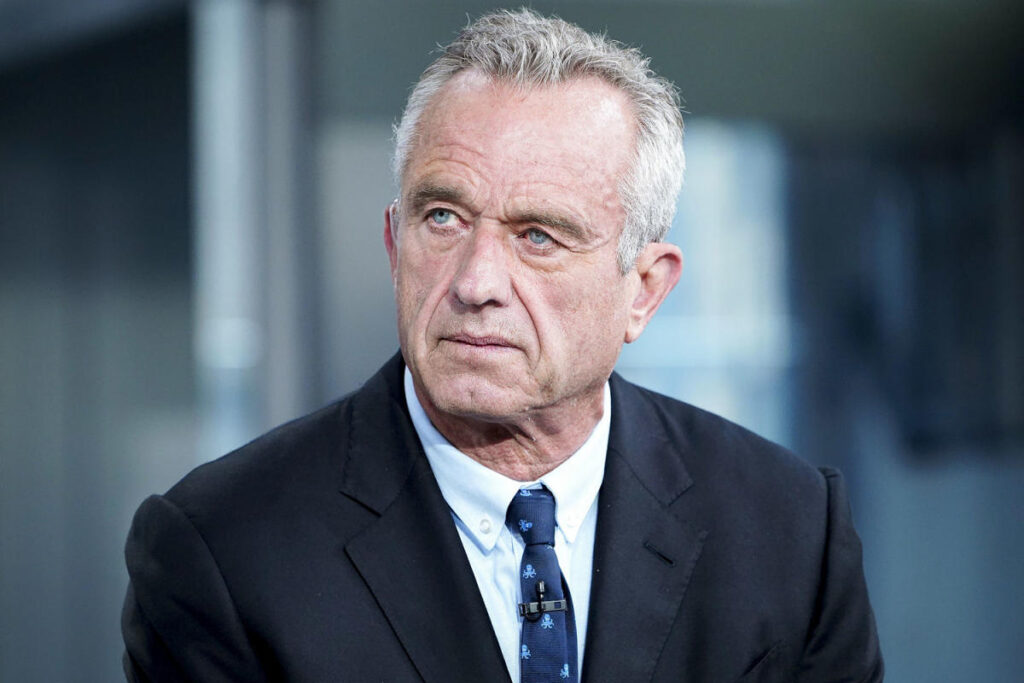In the wake of President-elect Donald Trump’s announcement of Robert F. Kennedy Jr. as his pick for the Department of Health and Human Services (HHS) secretary, reactions from senators revealed a deep political divide. Trump’s unconventional choice is set to face rigorous scrutiny in an incoming Republican-controlled Senate, where the confirmation process is poised to be unpredictable. Although some Senate Republicans appeared cautious, emphasizing the thorough vetting process that nominees undergo, others openly lauded Kennedy’s selection. Senator John Thune, the newly elected Republican leader in the Senate, opted to refrain from expressing his opinion on Kennedy’s qualifications while acknowledging the need for a careful review of the nominee’s past and policies.
Enthusiasm for Kennedy’s appointment was evident among several Republican senators. Senator Bill Cassidy, the ranking member of the Senate Health, Education, Labor and Pensions Committee, praised Kennedy, though he remained noncommittal about his voting intentions. Other Republicans took to social media to express their support, with Senator Ron Johnson describing Kennedy as a “brilliant, courageous truth-teller” and Senator Tommy Tuberville highlighting the appointment as “an absolutely brilliant pick.” Senator Josh Hawley characterized the announcement as a setback for pharmaceutical companies, indicating significant backing for Kennedy within parts of the Republican Party.
Conversely, Democratic senators expressed sharp disapproval of Kennedy’s nomination, painting it as a significant threat to public health. Senator Ron Wyden characterized Kennedy’s views on vaccines as “outlandish and disturbing,” voicing concerns for public safety, particularly for children in schools. Senator Ed Markey called Kennedy “dangerous,” while Senator Chris Van Hollen condemned the decision as emblematic of poor judgment. Senator Patty Murray raised alarms over the possible repercussions of an anti-vaccine advocate heading a critical health agency, asserting that monitoring public health and reproductive rights could be jeopardized under such leadership, stressing that Kennedy’s beliefs could lead to dire consequences for Americans.
Kennedy’s long-standing criticism of vaccines, notably his promotion of debunked theories linking them to autism, fueled the vehement opposition from Democrats. They expressed fears that Kennedy’s stance could undermine the credibility of public health policy in the U.S., presenting a substantial challenge to the incoming Trump administration’s health agenda. Murray’s comments underscored a prevalent concern among critics that appointing someone with such a controversial background could tarnish the integrity of the Department of Health and Human Services.
Despite the overwhelming criticism from the Democratic side, there was at least one notable Democratic voice for Kennedy. Colorado Governor Jared Polis commended the selection, suggesting that Kennedy’s leadership could bring necessary changes to HHS and the FDA. However, Polis later clarified that he fully supports vaccination and emphasized that scientific integrity must remain paramount in U.S. health policy. This duality in response highlights the contentious nature of Kennedy’s potential appointment and the shifting dynamics within political support and accountability regarding public health discourse.
In the broader context of the Senate, Republicans are poised to hold a minimum of 52 seats, with the chance of securing an additional seat pending a recount in Pennsylvania. For Kennedy’s confirmation, a majority of senators must vote in favor, which raises questions about the bipartisan divide on health issues. The varying levels of support and opposition among senators underscore the complexity of the forthcoming confirmation process as the political landscape that shapes public health in America continues to evolve dramatically.

